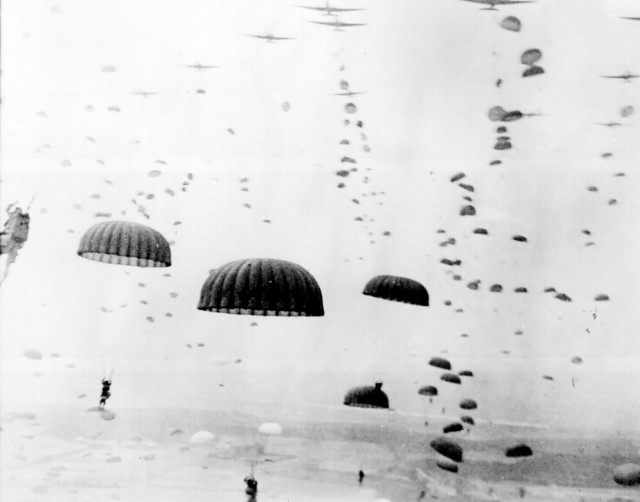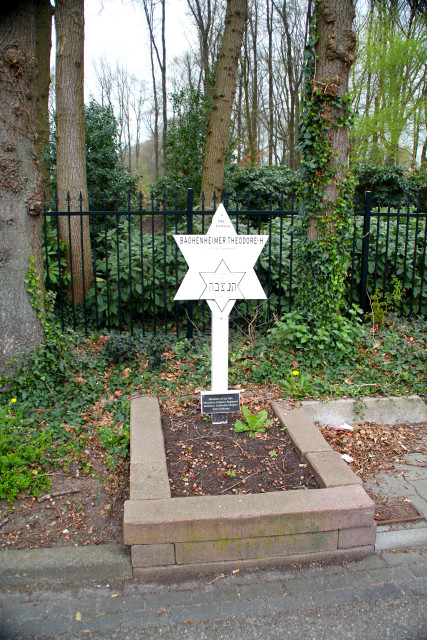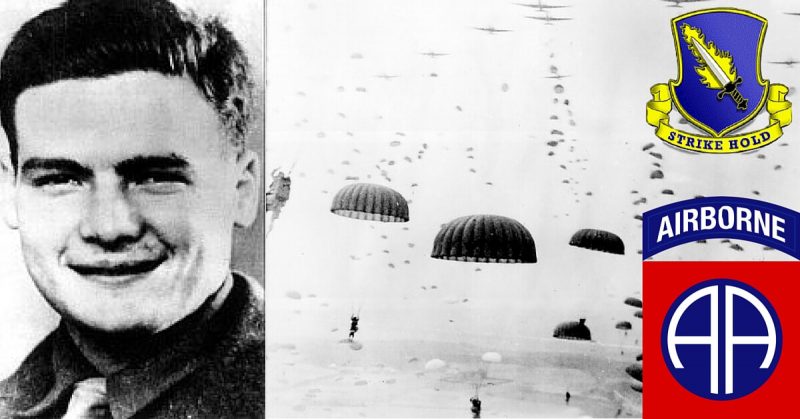Theodore Herman Bachenheimer earned many titles in his life. They weren’t always the titles of rank or hierarchical authority, but rather the ones given to him by his brothers-in-arms throughout the Western Allied armies; by the newspapers back in the US; by the wary German soldiers patrolling at night in Italy and Holland, who knew the Legendary Paratrooper might not be too far away.
The G.I. General, The Daniel Webster of No Man’s Land – Bachenheimer’s nicknames alluded to his endless cunning and adaptability while out on patrol or down behind enemy lines. A soldier of continuous bravery and a man of genuine charm, he joined the military after the attack on Pearl Harbor, and fought courageously until his death on October 22nd 1944. After being captured, he had escaped – only to be gunned down a few days later by German troops.
His life was a remarkable one. In Italy, he was a ghost in the night; in Holland, the commander of 300 Dutch partisans operating in German-held territory. The story of this private from the U.S. 504th Parachute Infantry Regiment was legendary long before his death.
Bachenheimer was born in Germany in 1923 and lived there until Hitler’s rise to power. Due to the Jewish heritage on his father’s side of the family, they moved to Prague and then Vienna, before boarding a ship in France and heading to the USA in 1934. The family settled in California but, after Japan’s attack on Pearl Harbor, Bachenheimer enlisted in the US Army, determined to defend his country.
Bachenheimer’s reputation began to spread while US forces were operating from the beachhead at Anzio, during the Ally’s campaign in the boot of Italy. Every night, the young soldier was eager to go on patrol and almost always came back with German prisoners in tow.
A tribute to Bachenheimer on World War II History Project quotes extensively from Fred Baldino, a fellow 504th soldier. Baldino compiled all the information he could find on Bachenheimer to preserve his comrade’s memory. Here is one brief story he tells about being on patrol with the so-called Daniel Webster of No Man’s land, known for talking Germans into surrendering:
“We were soon pretty deep in German territory, walking very quietly when we suddenly heard some guttural voices, and we all hit the ground. About 20 yards away we could faintly see about a platoon of German soldiers. They were relieving their outposts with fresh troops. After they passed on, Ted told us to stay put, and he walked up to a German outpost and, speaking German, asked the two men in the foxhole for a light for a cigarette. When they went to do so, he quietly told them they were his prisoners.” (Source: World War II History Project).

The same tribute quotes American Weekly reporter Martha Gellhorn as writing that despite Bachenheimer’s great talent for war, he was a peaceful man.
‘”In principle, I am against any war,’ he would say. “I simply cannot hate anyone”‘ (Source: World War II History Project).
An article from the September 25th 1944 edition of the Los Angeles Times states that Stars and Stripes magazine sent a reporter to talk to Bachenheimer on the Italian front. However, after two days of searching he gave up, stating that Bachenheimer was perpetually “way out there alone somewhere, trying to talk the whole German army into throwing in the sponge” (Source: Los Angeles Times, Sept. 25th, 1944, “Hollywood Hero Becomes ‘General’ of a Dutch Army”).
When the 504th was fighting on the Western Front, Bachenheimer and his Regiment were airdropped into the Netherlands near the cities of Grave and Nijmegen during Operation Market Garden: a huge front line and paratrooper assault which attempted to push over the Rhine, the Lower Rhine and the Maas, securing more of Holland and moving into Germany. The plan failed to meet objectives and many U.S. and British troops were isolated by German forces around Nijmegen and Arnhem.
It was in Nijmegen that Bachenheimer spotted some lights flickering in a steel factory. He went to investigate and found a group of Dutch partisans. He elected to fight with them and they soon appointed him their Kommandant. He helped in organizing resistance, patrols, scavenging German weapons and establishing communication with the Allies. Soon, he led 300 Dutch fighters.
In one incident, he infiltrated a railroad station guarded by German soldiers and found the microphone to the station’s loudspeaker. After yelling, “come out, hands up, or your all dead!” and firing a few bursts from his Tommy gun, the Germans fled.

In mid-October 1944, Bachenheimer journeyed with Captain Peter Baker of British intelligence to the Ebbens’ family fruit farm outside of Tiel. There, they worked on Operation Windmill Line, stealthily evacuating British paratroopers hidden by Dutch resistance back to friendly territory.
On October 16th, German troops raided the Ebbens’ farm and found both Bachenheimer and Baker, along with a weapons cache. The Ebbens family was shot, their farm set on fire and Bachenheimer and Baker were taken away for questioning. They were later loaded onto a train as Prisoners of War, bound for Stalag XI-B, Fallingbostel.
During the night on October 20-21, Bachenheimer escaped. Another man might simply have fled, trying to put as much distance between himself and his pursuers – but not Bachenheimer. Near the village of ‘t Harde, he was continuing his mission, laying a telephone line to communicate with his Dutch resistance army, when he was spotted by German troops. The legendary soldier was shot in the back of the head and the neck. A marker stands in the place where Dutch citizens found his body, commemorating his bold and astonishing feats.
At the time of his death, he was 21 years old.
Bachenheimer was awarded the U.S. Silver Star (for action in Anzio), Bronze Star and Purple Heart, along with the Bronze Cross (by Queen Juliana of the Netherlands in 1952).
By Colin Fraser for War History Online
